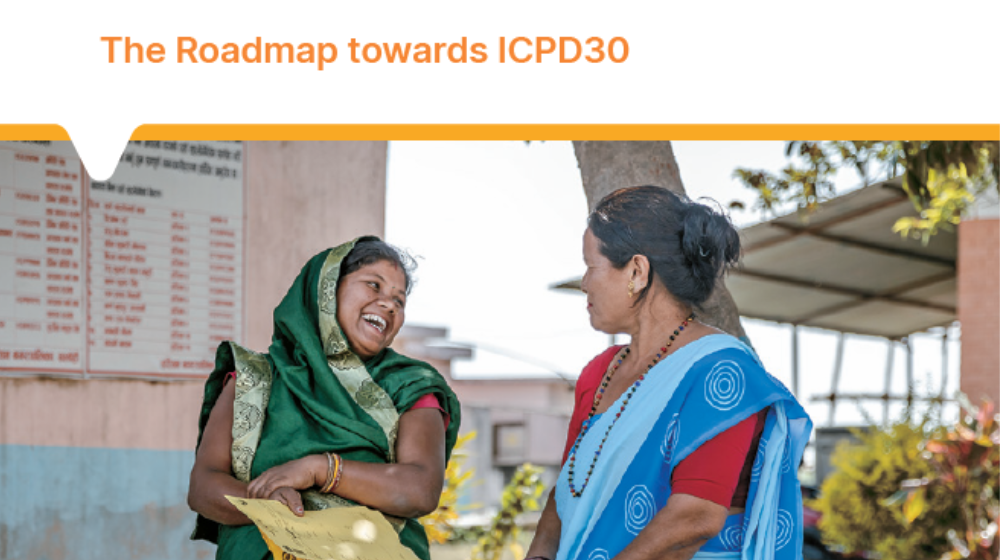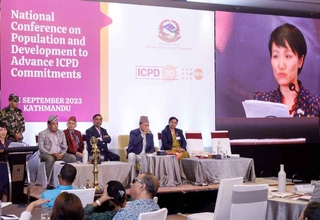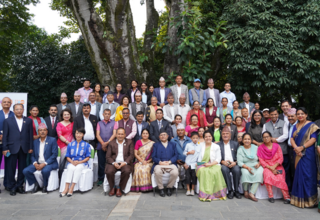Mid-career government officials and academicians have been oriented on the evidences of trends, patterns and future directions of population dynamics in Nepal and their use as guidance for demonstrating development results.
At a workshop organized by Central Department of Population Studies/Tribhuvan University in collaboration with the Population Division under the Ministry of Health and Population and UNFPA, the United Nations Population Fund, they learned how to identify and select evidence based population and development related indicators to be integrated in policy and programming.
The Evidence-Based Planning (EBP) and Result-Based Management (RBM) Training Workshop was organized with reference to the Long-term Population Perspective Plan 2010-2031 in Dhulikhel, Kavre, from 16-20 September, 2014. Out of 20 participants, 15 were from government agencies and the rest from academia--all responsible for population related programme management. At the end of the workshop, the participants built a common understanding of RBM concepts and also of the approaches related to long-term population management programmes in Nepal.
The Evidence-Based Planning (EBP) and Result-Based Management (RBM) Training Workshop was organized with reference to the Long-term Population Perspective Plan 2010-2031 in Dhulikhel, Kavre, from 16-20 September, 2014. Out of 20 participants, 15 were from government agencies and the rest from academia--all responsible for population related programme management. At the end of the workshop, the participants built a common understanding of RBM concepts and also of the approaches related to long-term population management programmes in Nepal.
In addition, the participants gained knowledge on mainstreaming RBM in programme planning, implementation, monitoring, evaluation and reporting in managing population programmes. In the training, six sessions were devoted to population and development dynamics in Nepal and four focused on RBM, wherein the participants were familiarized with the concepts of logical framework to develop results-based action plans.
During the closing session, Top Narayan Sharma, Chief of the Population Division/MoHP, linked the essence of such training workshops with the Programme of Action of the International Conference on Population and Development (ICPD/PoA). The participants who spoke during the closing ceremony said the training workshop broadened their knowledge of population dynamics and RBM concepts and expressed commitment to apply their skills in their respective fields.
During the closing session, Top Narayan Sharma, Chief of the Population Division/MoHP, linked the essence of such training workshops with the Programme of Action of the International Conference on Population and Development (ICPD/PoA). The participants who spoke during the closing ceremony said the training workshop broadened their knowledge of population dynamics and RBM concepts and expressed commitment to apply their skills in their respective fields.




